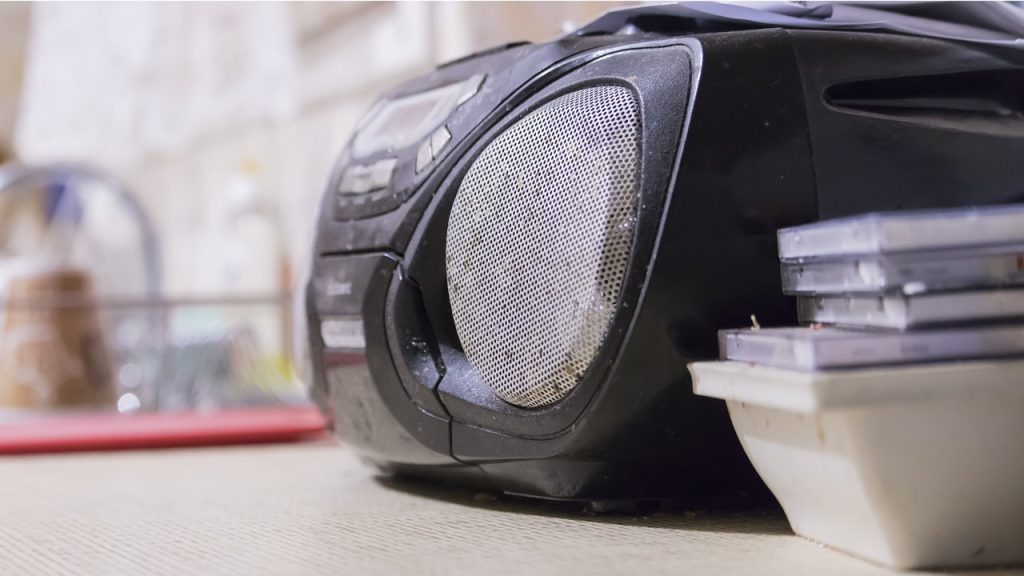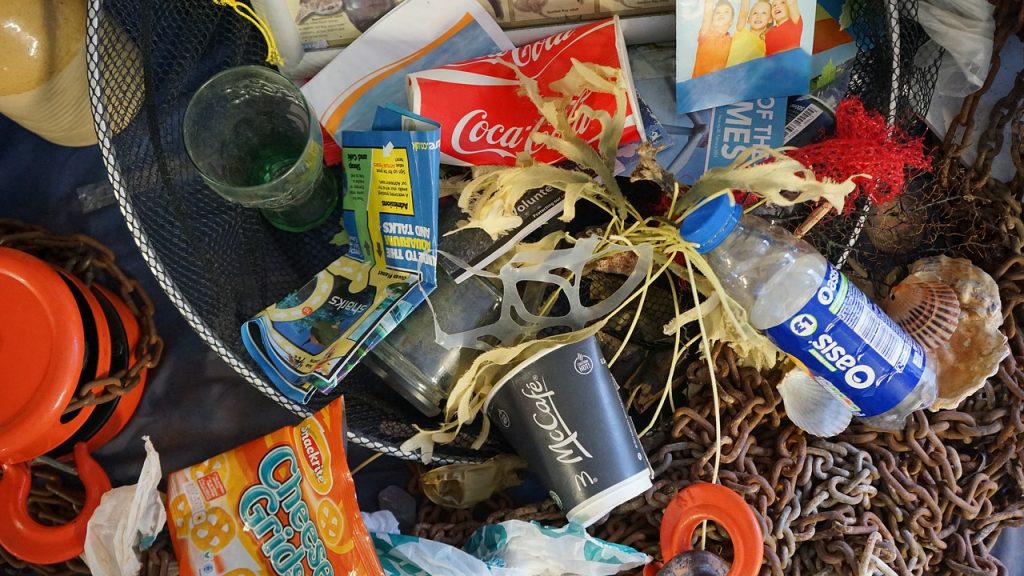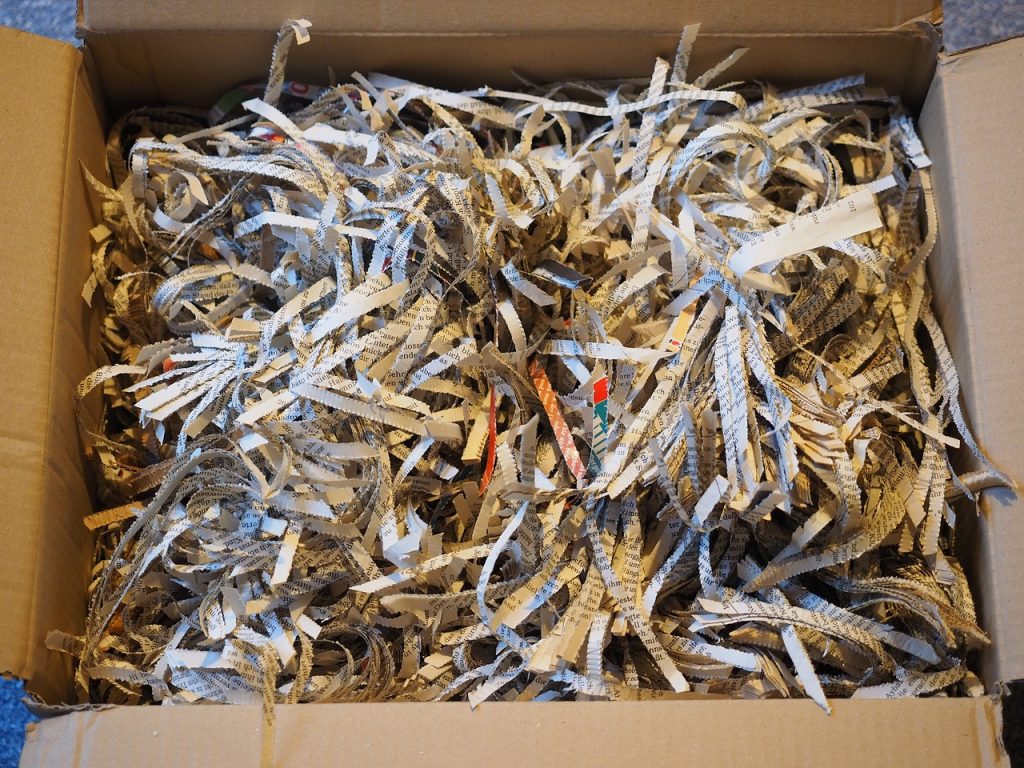- Remove any paper or stickers from the CDs.
- Discard the cases separately.
- Check with local recycling services for CD acceptance.
- If local services don’t accept, find online organizations for CD recycling.
- For commercial quantities, seek commercial recycling services.
- Ensure data destruction if necessary.
- Use apps to check recyclability in your area.
- Consider upcycling or creative repurposing before recycling.
The Basics of How to Recycle CDs and DVDs for Residential and Commercial Purposes
If you’ve been wondering “how to recycle CDs,” you’ll be thrilled to know that CD recycling isn’t as daunting as it may seem. Recycling CDs is a remarkable way to contribute to green living and craftsmanship, and it demonstrates the way we can reduce waste while maintaining our love for these compact discs and DVDs. These items, when recycled correctly, can be used to create new products, thereby reducing the demand for fresh materials and helping to conserve the Earth’s natural resources.
Residential recycling for CDs and DVDs can be started right from the comfort of your home. Look around; you might just find a stack of CDs or DVDs that aren’t in use. The first step involves removing any paper or stickers from the CDs. Then discard the cases separately. Most local recycling services do not accept compact discs. However, some might provide a pickup service for CD recycling, which makes things easier. Be sure to reach out to your local recycling authority to learn their guidelines.
If you aren’t able to find a local service, there are several organizations available online where you can post your CDs for recycling. They either refurbish and resell CDs and DVDs or properly dispose of them to be used as a resource for manufacturing new items.
In the commercial sector, companies often accumulate large amounts of CDs and DVDs. These firms should seek out commercial recycling services with accessibility features to manage large-scale CD recycling. Many services thoroughly destroy the data on your CDs, ensuring that no sensitive information is leaked. They then recycle the CDs into a variety of different products.
Recycling CDs, DVDs, and their cases encourage a green lifestyle and work towards the betterment of our environment. As the old adage puts it, “Recycling is not just about waste—it’s about waste prevention.” Other than reducing waste, recycling benefits our environment in numerous ways. It conserves resources, saves energy, helps us minimize the impact on climate change and the environment, and helps us sustain the earth for future generations.
As we approach the coming Earth Day, let’s pledge to make recycling a part of our daily lives. Don’t just stop at CDs, aim to recycle everything you can. By recycling right and recycling often, we jointly work towards a greener, healthier planet. So next time you’re about to throw away a CD, think twice and see how you might individually contribute to reducing, reusing, and recycling.
Remember, You can check for apps that reads barcodes of products such as CDs and DVDs and tells you if the item can be recycled in your area. In the fight against waste, every little effort counts. Try to recycle as part of your commitment to a healthier lifestyle—and also to keep our environment clean and green.
Understanding what makes CDs and DVDs Recyclable Tech Waste
While CDs and DVDs might seem like archaic tech items, they’re an essential component of recyclable waste we must address correctly, in our collective effort to maintain a green lifestyle and reduce waste. Understanding what makes them recyclable tech waste is crucial to this endeavor. Compact discs, more commonly referred to as CDs, along with DVDs, are crafted mostly from polycarbonate plastic, making them inherently recyclable items.
However, it’s not the plastic itself that’s primarily a problem but the way we dispose of these items. Conventional waste services often don’t accept CDs and DVDs or are ill-equipped to recycle them effectively. Instead, local recycling services often provide dedicated collection points for these tech items. Using these services is an excellent way of ensuring your old computer game, music disc, or movie doesn’t end up in landfill, and instead is recycled and given a new life.
The cases these discs come in are also important to consider. They’re typically constructed from a different type of plastic, which means they need to be processed separately from the CDs and DVDs. When you consider the number of these discs produced over the years, it’s easy to see why responsible recycling is such an important issue. Thankfully, many places have embraced the idea of recycling these items, and it’s increasingly simple to find a local service that’ll accept them.
The app era and our movement towards a digital lifestyle have made CDs and DVDs somewhat redundant. Yet, they linger in our storage units, workspaces, and homes, contributing to clutter and potential waste. It’s worth noting that not all is lost should you want to rid yourself of your old discs, in the spirit of Earth Day or any other commitment to a more sustainable lifestyle. Many third-party content creators enthusiastically seek out these old discs to upcycle them into unique decorative pieces or other charming creations.
On another note, these posts and initiatives remind us that recycling plays a pivotal part in our daily lives and obligations as responsible Earth citizens. As your local health director might affirm, small steps like these cumulatively have a significant positive impact on our environment. Not only do they imbue our mgb sustainability goals with greater accessibility, but they also encourage us to consider the overall life cycle of the products we consume.
While recycling services can take care of your old CDs and DVDs, it’s also worth considering other ways to dispose of them in a green manner. This might include repurposing the discs into creative projects or simply sending them back to the original company for proper disposal if possible. Regardless of the method you choose, it’s necessary to tackle CDs’ recycling and DVDs to combat the tech waste issue and promote a healthier future for us all.
The Process of Recycling CDs: A Guide to Keep Recycled CDs and DVDs out of the Waste Stream
A large part of our task to lead a green lifestyle involves learning how to recycle items like CDs and DVDs. Compact discs that have outlived their usefulness need not clog up our home or work environments or, worse yet, end up in a local landfill. CD recycling plays a crucial role in maintaining the health of the earth, as we celebrated this on Earth Day. Tackling CD and DVD waste on a post-use basis is not only the right thing to do for the Earth but also augments our shared roles as health directors in our microcosmic living and working spaces.
The process of recycling CDs and DVDs starts with the collection of these items from residential or commercial sites, which can be facilitated by services offering pickup facilities. It’s also worth mentioning that many local recycling services offer collection boxes specific for CDs and DVDs. These services ensure that your home or business’ accessibility features are taken into account during pickup.
Once collected, the CDs and DVDs are transported to a recycling service. CD recycling involves breaking down the discs, typically made from plastic and aluminum, into their constituent elements. This step can often entail separating the different types of materials found within these products. For instance, the cases used to protect the CDs and DVDs also need to be processed differently due to the different types of plastic used.
To reduce waste and ensure proper recycling, each part of the CDs and DVDs is process separately. Typically, the CDs and DVDs themselves are grinded down, while the cases may undergo a separate process. This is a crucial step to ensure that every part of your old CDs and DVDs can be effectively recycled and repurposed.
Aside from recycling CDs and DVDs, taking steps to recycle other tech accessories such as wires, plugs, or even broken equipment is also important—and often, these items can be recycled within the same service. Green living means considering all aspects of our impact on the environment while taking active steps to make a change.
We are all part of this beautiful planet and have responsibilities towards it. Whether you’re a professional in a commercial setting or just looking to reduce waste at home, recycling CDs and DVDs is not just possible—it’s also beneficial. So, next time you come across an old and dust-covered CD or DVD, don’t just chuck it in the bin or let it clutter up your space. Look into your local CD recycling options and make the green choice.
We can also offer insights into the various ways people across the globe are upcycling and recycling CDs and DVDs. Even though these information discs may seem like a thing of the past, they still hold an important place in our present day waste stream. Our actions now will significantly affect the sustainability of our future. Let’s all do our part.
How CDs, once Recycled, Provide an Ideal Model for Non-Residential or Commercial Recycling
Recycling CDs might be a relatively unknown concept, but it’s a great avenue to pursue to reduce waste. And CDs, once recycled, create an ideal model for non-residential or commercial recycling. But why, exactly, are CDs recyclable tech waste, and how does recycling work? First of all, compact discs (CDs) and digital versatile discs (DVDs) are constructed primarily from plastic which makes them not only recyclable but potentially very useful once they’ve been recycled. The process of recycling CDs and keeping them out of the waste stream is therefore not just an aspect of an eco-friendly lifestyle, it’s also a way to dispose of items that can still have utility.
Local recycling services generally will accept CDs and DVDs along with their cases. You can also send your unwanted CDs and DVDs to specialty recycling services; check the accessibility features on their websites for details. Your health director or waste services provider might also have information about local collections or initiatives geared toward CD and DVD recycling. And events like Earth Day are often accompanied by electronics recycling drives, offering another way to get rid of tech waste.
What happens to CDs and DVDs once they’re collected for recycling? After collection, these items are run through an industrial plastic grinding machine that shreds them into small pieces. This plastic ‘confetti’ can then be used as raw material by manufacturers of a wide range of products. Recycled CDs and DVDs can thus give new life to everything from building materials to plastic garden furniture, highlighting the model’s potential beyond being mere items in the waste stream.
Every time you recycle a CD or DVD, you’re preserving natural resources, reducing the energy required to produce new items, and mitigating the amount of waste that ends up in our landfills. It’s worth considering that CDs were a staple of the pre-streaming era, meaning there are likely billions languishing in homes and offices worldwide. That tonnage represents a potential trove of resources that could be harnessed through widespread commitment to recycling practices.
So this Earth Day, consider checking whether the recycling service you use offers a free app for information about their services. Make sure you look up specifics like whether they collect CDs, and whether they ask for CDs to be separated from their cases or not. If you’re able to take the post to mail off items for recycling, you’ll be participating in a global effort to promote green living and reduce waste for a better environment. Breaking down our tech waste into reusable components is just the beginning of what we can achieve, and CDs serve as an excellent prototype for this process.




